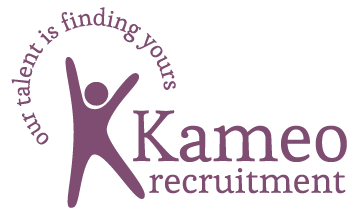We’ve all seen it “salary on offer: competitive” – does anyone else think, yawn?! What does this even mean?
Now, offering a competitive salary is possible assuming the hiring manager, or talent acquisition team have done their research! When you advertise that you are offering a competitive salary what you’re essentially saying is: “we’ve looked at our sector/ industry, and your job title, and based on our findings the salary we are offering, inclusive of additional benefits, is equal to, or greater than, the average salary for the same or a similar role in the area”.
If you do all the above each time you advertise a role, then chances are you really are offering a competitive salary, great stuff!
However, the term “competitive salary” has lost its competitive edge, and here is why…
It is everywhere. Competitive in relation to what? Other salaries within the same company? The region? The industry you work in? A plethora of questions come to mind when we read “competitive salary”, and in a recent LinkedIn poll we found that:
🌟 38% of 64 people question why there isn’t a salary bracket
🌟 33% question the transparency
🌟 22% won’t take the time to apply
🌟 8% are still happy to apply
Matt Freestone, founder of Unmatched (Suffolk based marketing agency), made a noteworthy comment on this pressing topic:
“Candidates deserve to know the bracket at least to decide if it’s worth their time applying.
Companies not offering the bracket or salary either have a pay transparency issue internally or are not actually paying a competitive salary.
I wouldn’t apply to any role where compensation isn’t shown in the job ad.”
This comment perfectly attributes to the general consensus: show us the money!
Finding talented employees is a recurring challenge in the labour market; our advice: make your search more fruitful, ergo more successful, by advertising the salary, or salary band.
Replacing competitive salary
Are the cogs turning? Are you currently thinking: how do I replace “competitive salary” altogether to capture the skillset we require?
Well, here are our top tips:
⭐ State the salary, or a salary bracket, above all else you’ll stand out from your competitors as a business who promote salary equality!
⭐Use the phrase “negotiable” but BE willing to negotiate. Negotiations are a two-way street; you can’t set all the terms. But you can be aware of your non-negotiables before you engage with any potential new hires. If you know skills are an absolute must you’ll identify the pool of candidates who are worth negotiating with.
⭐Does the salary depend on experience? If so, let the applicants know! But give them more than this, what experience are you looking for? Again, think about those non-negotiables. To add: tell them what experience you’re looking for sooner rather than later; hook them in with what you require, rather than leaving it until the end.
Eeek, we know our salaries aren’t competitive… what can we do instead?!
Firstly, don’t pretend it is, instead could you….
⭐ create a working environment people want to be part of e.g., do you reward the small things? Have you implemented hybrid or flexible working? Is it time to revamp your incentives? How do you acknowledge your unsung heroes? E.g., your support staff: administration, HR, marketing teams etc.
⭐Improve your employee well-being, this does not need to cost the earth, but this topic is a blog in itself; so, get in touch if you want further tips on this topic!
⭐ Assign a budget to professional development. Did you know Kameo are partnered with the Centre of Excellence? Our unique discount code can give you up to 70% off a range of courses, find out more here.
⭐ Create a brand so good, people can’t say no! Social media is a great medium for doing this. If people have enough to live on salary isn’t always the main driver! Honestly, people love working for a great employer, and this does, occasionally, supersede the financials.
⭐Can you offer profit share? A profit share will offer you a competitive advantage and can save you money too! When you offer a profit share employees are likely to work harder, smarter, and be more loyal.
⭐Do you accept that the people within your business are human, and life happens? Do you let them take the morning off to see their son in the nativity, do you care if they book a dentist appointment on a Wednesday afternoon? Tell people this, it’s what they want to hear.
Candidates, we can help you combat this too
Candidates, our message to you is think greater than the salary and before you apply, or in the interview:
- Discuss the salary, ascertain if it’s competitive to you
- Look at the whole opportunity, not just the salary
- Benchmark yourself against the opportunity, know your own worth! E.g., do you have desired qualifications? What is your previous experience / job title? How many years have you spent in the industry?
- What vibe are you getting from your peers and leadership team? Can you see yourself working there?
- How happy are you knowing you could be part of the business you’re interviewing for? Salary is great but happiness is more.
When the salary is a sticking point for you, we advise:
- You speak to your recruitment consultant about the national / regional average and use it during your interview. Please note, smaller companies irrespective of region are likely (although not always) to pay less than your large corporate who are looking for the same person.
- Know when to walk away – if your research and expertise demonstrates you are worthy of more, then it is important that you understand you can walk away and source a more lucrative opportunity elsewhere.
So, if all the above is true why does “competitive salary” appear so often? Often it comes from not knowing that there are alternatives, it could be a “well this is the way we’ve always hired” culture, and sometimes it’s genuinely the truth. If you can, take “competitive salary” with a pinch of salt, be a bigger picture thinker and use some of the tools we’ve outlined above ⬆️
It’s also worth bearing in mind…
✔️Salary is often confidential
✔️It’s a way of companies filtering out those who are only in it for the money
✔️It gives you room to negotiate!
In a nutshell, if you’re a candidate or a client our message is this: if it feels right go for it, offer the job, apply for the job, say yes to the job, enjoy the journey; after all, “you miss 100% of the shots you don’t take” – Wayne Gretzky.
East Anglian Salary Survey
Thank you, REED.co.uk, for showing up year after year with your salary survey! It helps us put “competitive” into perspective; clients if you’re offering equal to or below the salaries included in the segment below you cannot state that your salary on offer is competitive.
| Marketing | |
| Marketing Manager | £41,400 |
| Marketing Executive | £26,900 |
| Web Designer | £34,300 |
| SEO/ PPC Executive | £27,200 |
| Graphic Designer | £27,800 |
| Sales | |
| Sales Manager | £44,400 |
| Sales Executive | £29,300 |
| Business Development Manager | £42,300 |
| Account Manager | £33,300 |
| Sales Engineer | £36,900 |
| Commercial | |
| Office Manager | £32,000 |
| Executive Assistant | £29,300 |
| Administrator | £25,400 (slight variation for sales & project administrators; £21,400 = sales and £20,400 = project) |
| Operations Manager | £40,200 |
| Personal Assistant | £25,800 |
| Commercial Continued | |
| Purchasing Assistant | £23,600 |
| Warehouse Manager | £31,00 |
| Logistics Manager | £45,700 |
| Transport Coordinator | £21,900 |
| Category Manager | £53,500 |
| Human Resources | |
| HR Manager | £46,300 |
| HR Business Partner | £46,100 |
| Recruitment Manager | £34,400 |
| Health & Safety Manager | £43,200 |
| Analyst | £39,600 |
| Engineering | |
| Engineering/Technical Manager | £45,100 |
| Project Manager | £50,400 |
| Field Service Engineer | £32,300 |
| Systems Engineer | £47,800 |
| Mechanical Engineer | £40,300 |
| IT | |
| Software Engineer | £50,700 |
| Web Apps Developer | £38,700 |
| Full Stack Developer | £48,100 |
| Automation Test Analyst | £47,600 |
| Software Development Manager | £64,600 |
Source: https://www.reed.com/downloads/reed-salary-guides-2022










